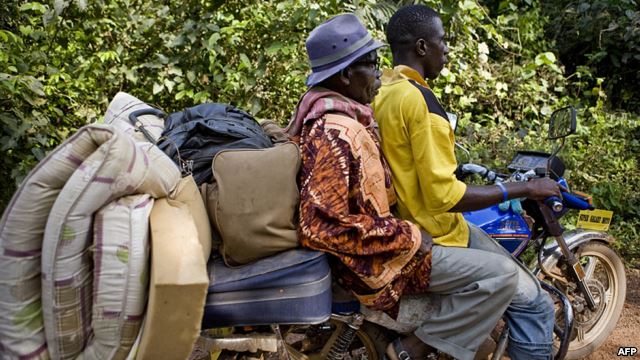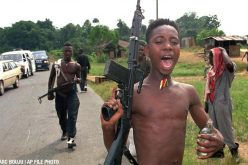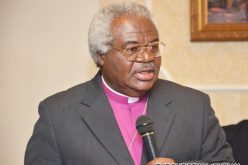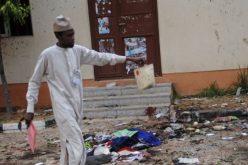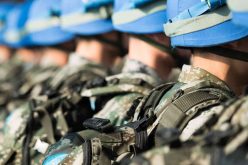Anne Look, VOA News
DAKAR, SENEGAL — Ivory Coast and Liberia are starting a dialogue aimed at promoting reconciliation and increasing security. Cross-border violence has calmed in the past six months, though tensions remain between locals in southeastern Liberia and thousands of Ivorian refugees who remain there after fleeing Ivory Coast’s post-election conflict in 2011.
More than 200,000 Ivorians fled into Liberia during the 2010-2011 post-election conflict. Close to 60,000 are still there.
Liberians living around the southeastern town of Zwedru say it is time for the refugees to go home.
“The refugees are problems for us. They go on our farms at night to steal our crops. They are taking all our forest land or they go and steal our cattle, said George Mend. “This is a serious situation right now. I hope that they can go back to Ivory Coast because since they came here, the criminal rate has increased and this is embarrassing for us local farmers.”
Communal tensions
Refugees told VOA, though, that fear keeps them from going home. The political crisis exacerbated ethnic and communal tensions, and disputes over land rights in western Ivory Coast.
Alpha Sandu, a refugee living at a camp in Zwedru, said everything about life in Liberia is hard. He said he wants to go home, but he is scared. He said “we don’t want people to kill us.”
Some refugees also say they don’t have much to go back to.
Human Rights Watch says hundreds of refugees have returned home to find that their land had been taken over or sold illegally.
Attacks staged from Liberia by Ivorian fighters and Liberian mercenaries have killed dozens in western Ivory Coast since the end of the conflict and strained relations between the two countries.
Ivory Coast violence
These combatants are believed to have fled to Liberia after fighting for former Ivorian president Laurent Gbagbo, who lost the 2010 election. The violence has calmed somewhat, however, and the most recent attacks were in March, which killed 10 people.
Liberian authorities have been arresting suspected mercenaries and began trying 18 of them last month in connection with the cross-border attacks.
Analysts say greater cooperation between Liberian and Ivorian security forces, and with the U.N. missions in each country, has tightened border security.
But the work of rebuilding communal ties continues.
Liberian President Ellen Johnson Sirleaf and Ivorian President Alassane Ouattara met in Zwedru this month for the final day of a peace and reconciliation conference with traditional chiefs from both sides of the border.
Sirleaf said it is time go back to the days of “peaceful coexistence.”
“It is not an option for Cote d’Ivoire and Liberia to work together. Dear friends, it is a necessity,” she said.
Family ties
During Liberia’s civil wars, which ended in 2003, communities in western Ivory Coast hosted tens of thousands of Liberian refugees.
For many, that border is just an arbitrary line separating communities that share family ties and speak the same language.
A traditional chief from Toe Town in Liberia, Sammy Weah, said opening dialogue is a step in the right direction.
He said, “We have to put the past behind us and work together to make this a better place. There is no need to fight. There is no need for criminal activities at the border. We are all one people.”
Prince Collins contributed reporting from Zwedru, Liberia.


